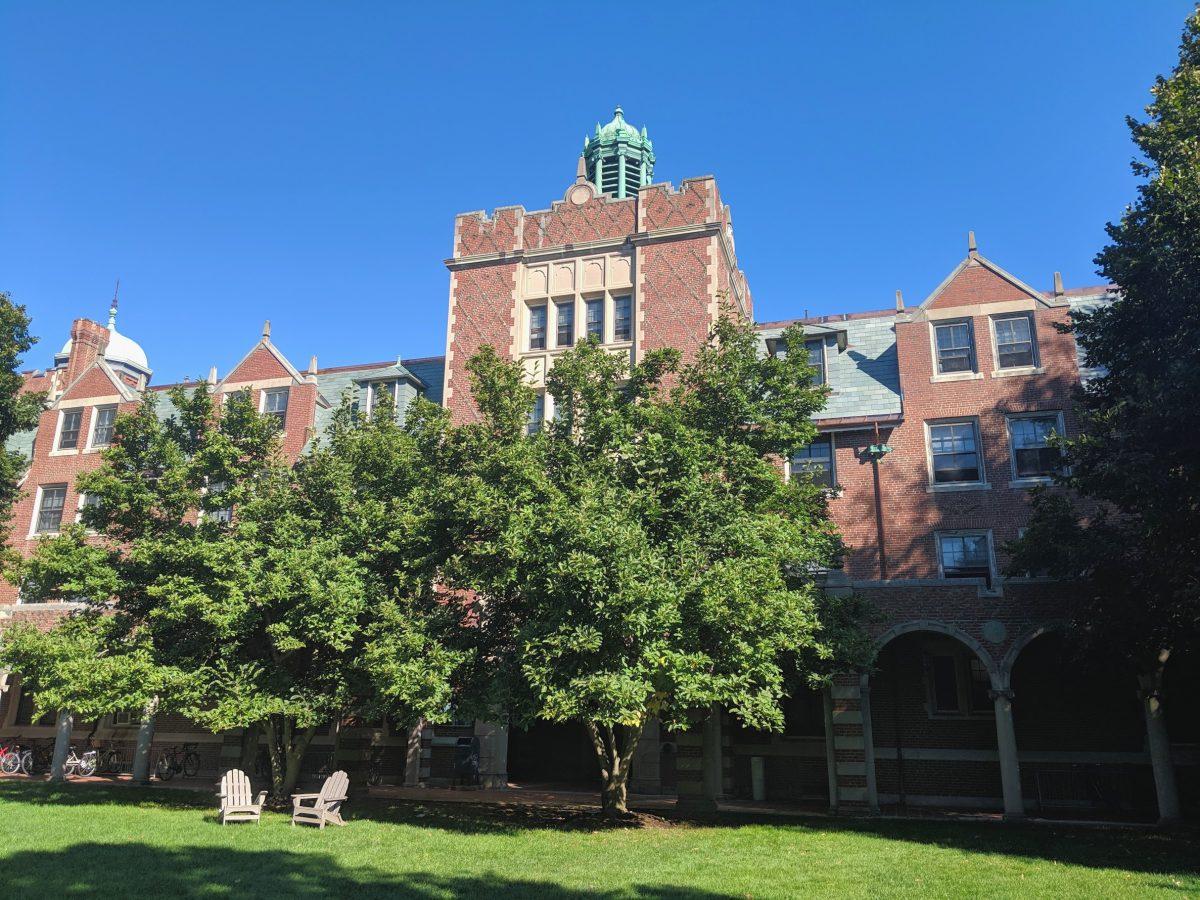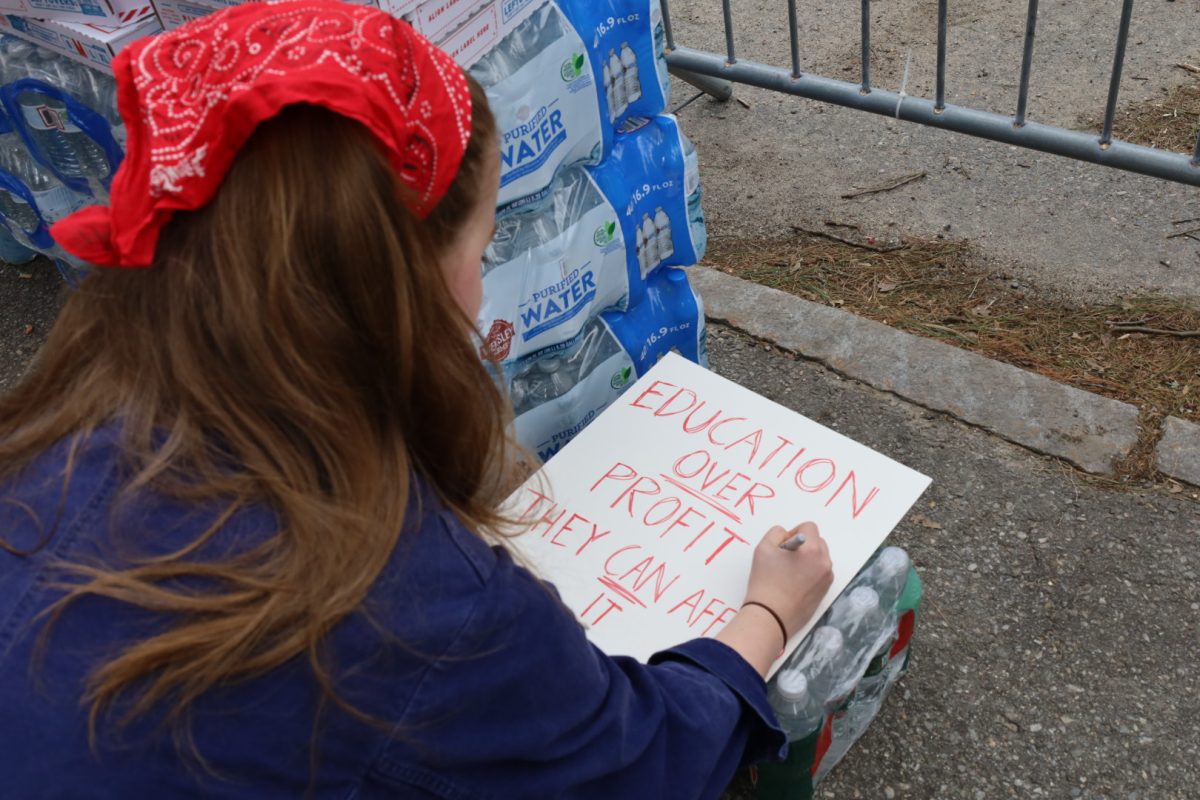Lauren Dines ’20 did everything right. When it came time to select housing for the 2019-2020 academic year last spring, Dines logged onto Wellesley’s brand new StarRez housing portal only to have it crash. The next day, Dines logged on again, acknowledged the annual housing contract and selected her room, a medical single in Claflin. When StarRez confirmed her room selection, her housing for the upcoming year seemed secured. For months, Dines did not receive any communication from the Office of Residential Life (ORL) indicating that something was wrong. Then, on August 29, an email came.
The email informed Dines that a StarRez error allowed another student to select the Claflin single after her, meaning that she would not be allowed to move in. As ORL refused to move the other student out of the room, Dines was offered temporary housing. “I got an email saying that I would be placed in a temporary triple on Bates ground floor,” Dines recalled in an interview with The Wellesley News. Because Dines has a medical condition which requires her to live in Tower Court, this triple was unacceptable. She messaged Helen Wang, the director of residence life and housing, who offered her a choice between living with the Residential Director (RD) of Tower or moving into a basement single in Claflin.
Dines chose the basement single, but soon discovered that it was an unrenovated, unused study space. “There were two desks drilled into the wall, and no bed,” said Dines. “They said they would get me a bed, but the only thing they were able to do [that night] was get a locksmith so I could have a key.” Dines explained that a spare bed had been located in a triple on campus, but ORL refused to retrieve it that night, so she got a hotel room to avoid sleeping on the floor. Dines was also told that the desks could not be removed before the start of classes due to a lack of facilities staff, so she was forced to remove them herself using a borrowed drill. Frustrated, Dines posted to Facebook asking if other students’ housing had been “messed up” by the College. The responses she received indicated one thing — that Dines was one of approximately 20 students who had been displaced.
Hannah Kwak ’20 was one of the students who commented on Dines’ Facebook post. In April, Kwak had chosen a single in McAfee, and StarRez had confirmed her room. Five days before the start of the fall term she received an email from ORL asking her to “confirm that she had cancelled her housing and that she wouldn’t be returning to campus.” This surprised Kwak, who had never cancelled her housing, had been charged the full $17,096 for meals and housing by the College and intended to return to campus. “I got kind of worried, because I got confirmation of my room in McAfee, so I was wondering, ‘Do I actually have a room?’” said Kwak. “I waited for ten minutes and then I called ORL. They said, ‘You were signed up for a room but it got cancelled on July 2.’” ORL also claimed that they had sent her an email confirming this cancellation, but Kwak says she never received one. “I would not cancel my room,” said Kwak, “and the StarRez portal still says that my single in McAfee is confirmed.”
Although her single in McAfee was still listed as “confirmed,” another student had also selected the room, and Kwak was offered temporary housing in Davis. However, when Kwak went to look for her temporary room on blueprints of Davis, she described a “gap” where a room should have been. “I looked for my room the next day and was unable to find it,” said Kwak, “so I was like ‘aha! I knew it! This room is not on the blueprint, so they must have made a mistake.’ But then I see a door with a post-it note on it that says my room number… I opened the door, and the first thing I saw was this huge fireplace, which has to be a health hazard… There’s ash everywhere, and when I open the windows, the ash flies around the room,” As Kwak soon realized, the temporary housing she and three other displaced students had been assigned to was a TV room. “Because it’s a common room, the windows are so big,” said Kwak, “so at night it is so cold… When I arrived a couple of the other students were sleeping there and they looked so cold, and I was so cold I went to the printing room next door and slept there.”
In the wake of stories circulating over social media, Wang hosted a housing forum on September 2 where she explained that severe water damage in Munger displaced four first-years. Wang stressed that there is no housing shortage on campus, saying “we have beds for all students, and all spaces have been inspected for safety and are up to code.” However, the over-enrollment of the Class of 2023 meant that there were no empty rooms for these first-years, so the Davis TV room was hastily renovated into a quad. The first-years were eventually moved to an apartment in Munger.
Wellesley has experienced similar crises before: in 2010, according to Wang, about 40 students were housed at nearby Regis College because of a record-breaking yield rate. During the 2002-2003 academic year, as alumna Jessica Smith recalls, an unusually low number of juniors went abroad in the aftermath of 9/11, which made housing more difficult than students were accustomed to.
Although technological errors caused most of the displacements, one student found herself in a completely different situation. A ’21 student, who spoke to The Wellesley News on the condition of anonymity, had chosen to live in a language corridor. The student received an email from ORL, the student recalled. “The email said that I wasn’t in the housing system at all, and my Dean contacted me asking if I was studying abroad…I was like, no, I’m not going abroad, I’m living in a language corridor.” The names of the language corridor residents had been forwarded to an ORL staff member to manually enter into the system. The staff member did not enter her name, and so she was left without housing.
Meanwhile, an anonymous student in the Class of 2020 received an email in August from ORL saying that her housing had been “cancelled” due to an upload error with StarRez. ORL placed her in the Bates triple Dines had originally been offered, which the anonymous student described as “an office space with a guest room attached …It was windowless, with stains on the walls. The air had a stale smell and it was missing furniture.” The student began calling ORL, who offered her a choice between a suite in McAfee or a single in Beebe. “They said ‘please get back to us by 9 a.m. the next morning with your decision,’” the student recalled. “The suite was out of the question because it has no privacy … the next day I go to take the Beebe single and ORL said, ‘Oh, it’s not available anymore.’ Apparently the original resident left the room because she thought there was a mold problem, so they offered it to me, which is kind of weird, but then it turned out the room didn’t have mold, so the resident went back.” Eventually the student was placed in a permanent single, which she acknowledges was “very, very lucky. It just opened up by coincidence. Before the permanent placement, they could not guarantee that I would have a single.”
This student attended the September 2 housing forum where Wang apologized to displaced students and explained that the displacements were caused by StarRez failing to enter data, as well as the deteriorating condition of the residence halls, which she said might cause more student displacement in the future. Wang also acknowledged that many students are displeased with the College’s response. “We have all of this money and yet the College can’t house its student,” said Kwak. “I just don’t understand why they didn’t put us in better places… I think President Johnson should come live in my room. I sent her an email and said ‘I wish you were aware of this situation, and if you are, you should take whatever action you think should be taken.’”
President Paula Johnson, in a statement to The Wellesley News, expressed concern for the status of the unhoused students. “I believe that even one student displaced is one too many,” she wrote. “Our Office of Residential Life has worked closely with individual students to address their unique situations,” she said, and added that students needing medical accomodations were prioritized. Now, she said, “All students have permanent housing. There are still some students who are in multi-occupancy rooms who would prefer single rooms, and Residential Life staff will continue to search for single rooms to offer these students if and when they become available.” However, according to Shanez’e Johnson ’21, at least part of that statement is untrue. Two hours after President Paula Johnson sent her statement saying that all students have permanent housing, Shanez’e was still living in the College Club, the hotel often used to host alumnae during Reunion and other events. “I’m still not housed,” she said. “The managers [of the College Club] just called this morning to ask if I would be staying there again tonight.”
Many of the displaced students still do not view their rooms as permanent. Several say they still have not unpacked even at the beginning of the third week of the semester. “I just want a room,” said Kwak. “[ORL] should have done better troubleshooting StarRez, but technology fails and I can deal with it… But I was thinking that they would give me an actual room. I’ve lived in Cazenove, so I know how bad rooms can be, but this is worse… My first year in Caz I had a broken pipe in my room but I was okay with it because it wasn’t a health hazard, unlike the fireplace. And at least I had a room.”







J K | Sep 20, 2019 at 1:24 pm
OK, so there was a glitch in StarRez. But clearly, there are more students on campus than rooms available for them. Can you get more information regarding reports of “over enrollment” for the incoming class? I understand that the college admits a certain number anticipating that some percentage will decline the offer and enroll elsewhere, and that this class may have exceeded the expected numbers, but I have also heard that students were admitted from the waiting list. If students were admitted from the waiting list, how would there be an over-enrollment for the first-year class? Can you clarify what the facts are? Is there higher than anticipated on-campus enrollment for other reasons, such as fewer students than anticipated going abroad, other students back from being on leave? What number of actual dorm rooms are simply unavailable because they need to be refurbished? Presumably the StarRez problem was a one-time glitch, but how does the college plan to address for next year the basic problem of too few dorm rooms for the number of students? Will the college simply cut back the number admitted in future years until additional rooms are available to accommodate everyone? Offer incentives for students to study elsewhere/abroad in programs that don’t require an exchange of students on the W campus?